Search results
Author(s):
George A Beller
Added:
3 years ago
A significant amount of data has accumulated over the past 20 years, demonstrating the value of exercise or pharmacologic stress non-invasive cardiovascular imaging techniques for the diagnostic and prognostic assessment of patients with suspected or known cardiovascular disease.1-8 Stress can be induced by either multistage exercise testing that is symptom-limited or by pharmacologic means with…
View more
Author(s):
Richard Solomon
Added:
3 years ago
The use of iodinated contrast media (CM) for both diagnostic imaging and interventional studies continues to increase. The introduction of multi-detector computed tomography (MDCT) scanners allows for quicker imaging of internal organs, and image acquisition is now fast enough for study of the coronary arteries. This technology requires the delivery of a high concentration of iodine to the…
View more
Author(s):
Pim van der Harst
,
Added:
2 years ago
In this short interview from our coverage of the ACC.22 late-breaking trials, Dr Pim van der Harst and Dr Marie-Sophie de Koning (University Medical Center Groningen, NL) discuss the data from the GIPS-IV trial which investigates the safety and efficacy of the hydrogen sulfide (H2S) donor sodium thiosulfate (STS) in patients presenting with ST-segment elevation myocardial infarction (STEMI) …
View more
Added:
3 years ago
HRT Linked to Heart Attack Reduction in Women Under 60 Years
Hormone replacement therapy (HRT) could reduce heart attacks in women under the age of 60 by up to one-third.
A study, conducted by researchers from Stanford and Cornell universities, analyzed statistical data for over 39,000 women. It uncovered that, for women who began HRT treatment to relieve menopausal symptoms whilst in their 50s,…
View more
Author(s):
Tasveer Khawaja
,
Scott Janus
,
Sadeer G Al-Kindi
Added:
1 year ago
Author(s):
Yury Malyshev
Added:
2 months ago
AF Symposium 24 — Dr Yury Malyshev (Mount Sinai Hospital, US) joins us to discuss the findings from three studies focusing on the long-term effects of pulsed-field ablation (PFA) on coronary arteries.QuestionsWhat is known currently about the effect of PFA in Coronary Arteries? What is the importance of this topic?What was the study design and cohort?What are the key findings?Who are the take…
View more
AI Powered CT Based Non-invasive CAD Testing
Video Series
Author(s):
Alexander G Truesdell
,
Matheen A Khuddus
,
Sara C Martinez
,
et al
Added:
3 years ago
“When you fail to prepare, you’re preparing to fail.”
– Coach John Wooden
Ongoing technological and procedural innovations increasingly permit the safe and effective performance of ever more high-risk and complex percutaneous coronary interventions (PCI) in the modern cardiac catheterization laboratory. Anatomic characteristics of higher risk include unprotected distal left main stenosis,…
View more
Author(s):
Gregory J Dehmer
Added:
3 years ago
The use of percutaneous coronary intervention (PCI) for coronary artery revascularization has grown considerably since the first balloon angioplasty in 1977. Improvements in equipment and drug therapies plus the development of coronary artery stents have all contributed to the growth of PCI as an alternative to surgical revascularization. Compared with the early days of balloon angioplasty, when…
View more
Author(s):
Mandeep Mehra
,
Christian Inchaustegui
Added:
5 months ago
In 2023, we are excited to partner with @CardioNerds, a dynamic team dedicated to democratizing cardiovascular education. Experience a fresh perspective on the new data through an interview series featuring principal investigators and ambassadors from the CardioNerds family.These interviews are supported by an educational grant from Novo Nordisk Inc. This content is not intended for UK HCPs.
View more









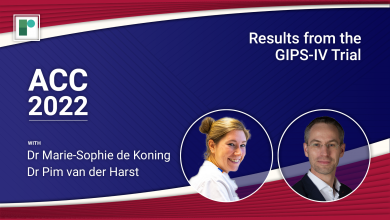
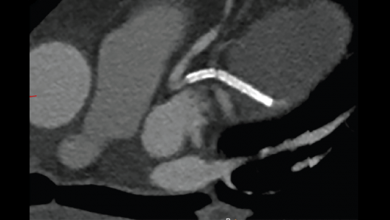
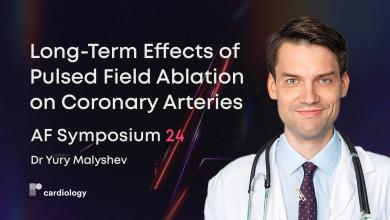
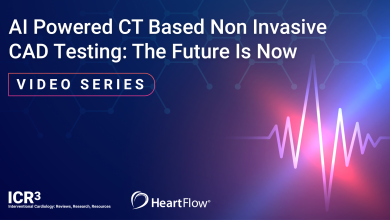
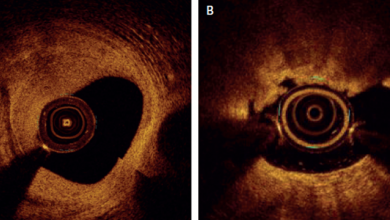
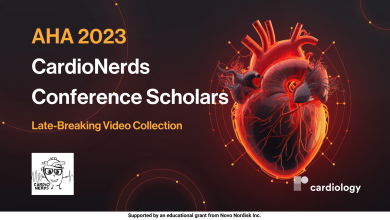
 « First
« First